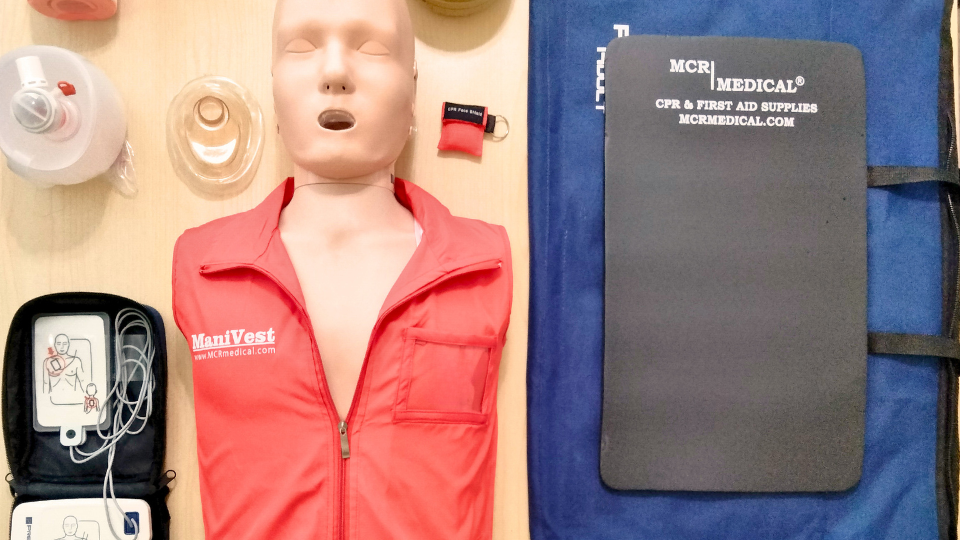Understanding First Aid, CPR, and AED:
First aid encompasses immediate medical assistance provided to individuals suffering from injury or illness before professional medical help arrives. CPR is a lifesaving technique performed on individuals experiencing cardiac arrest to maintain blood flow and oxygenation to vital organs. AEDs are portable devices that deliver an electric shock to restore the heart's normal rhythm in cases of sudden cardiac arrest.
Importance of First Aid, CPR, and AED Training:
Statistics reveal the significant impact of first aid, CPR, and AED interventions in improving survival rates and reducing the severity of injuries during emergencies. According to the American Heart Association (AHA), effective bystander CPR, when performed immediately, can double or triple the chances of survival for cardiac arrest victims.
Additionally, swift access to AEDs and trained individuals proficient in their use can further enhance survival rates. Studies have shown that the prompt application of AEDs within minutes of cardiac arrest can significantly increase the likelihood of restoring normal heart rhythm and improving outcomes.
Community Resilience and Empowerment:
The widespread dissemination of first aid, CPR, and AED training empowers individuals to respond confidently and effectively during emergencies, thereby creating more resilient communities. By equipping people with the knowledge and skills to provide immediate assistance, we can bridge the critical gap between the onset of a medical emergency and the arrival of professional medical help.
Training programs offered by organizations such as the American Red Cross, AHA, and local healthcare providers play a crucial role in disseminating lifesaving skills to the general public. These programs cover essential topics such as recognizing emergencies, performing CPR techniques, operating AEDs, and administering first aid for various injuries and medical conditions.
Workplace Safety and Duty of Care:
In the workplace, first aid, CPR, and AED training are integral components of a comprehensive safety program aimed at protecting employees and visitors. Employers have a legal and moral obligation to provide a safe working environment, which includes ensuring access to trained personnel and appropriate medical resources in case of emergencies.
Companies that prioritize first aid, CPR, and AED training not only fulfill their duty of care but also demonstrate a commitment to employee well-being and community safety. By investing in training initiatives and maintaining AEDs onsite, businesses enhance their preparedness to handle medical emergencies effectively, potentially saving lives and minimizing the impact of adverse incidents.
Personal Preparedness and Confidence:
Beyond the workplace, individuals who undergo first aid, CPR, and AED training gain invaluable skills that can be applied in various settings, including homes, schools, recreational facilities, and public spaces. Being prepared to respond to medical emergencies instills a sense of confidence and empowerment, enabling individuals to take decisive action when faced with critical situations.
Conclusion:
In conclusion, the importance of first aid, CPR, and AED training cannot be overstated. These lifesaving skills empower individuals to act swiftly and decisively during emergencies, significantly improving the chances of survival and minimizing the severity of injuries. By fostering a culture of preparedness and equipping communities with essential knowledge and resources, we can create safer environments where lives are protected, and emergencies are met with effective responses. Remember, being prepared today could make all the difference tomorrow.
